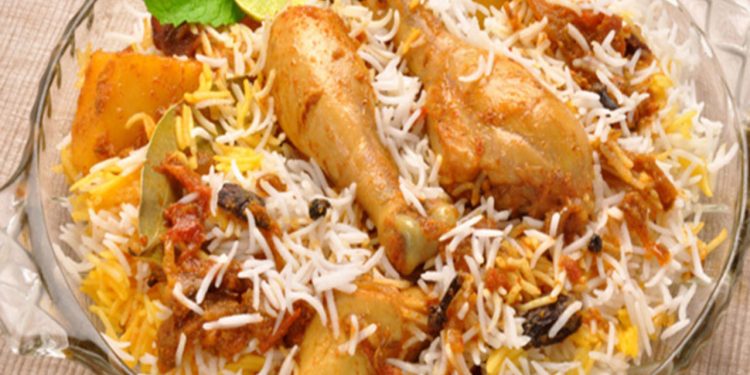Chennai: Roadside vendors in this Tamil Nadu capital are not spiking biryani, that ever-popular layered rice delicacy, with birth control pills as claimed in multiple Twitter posts, health officials here confirmed after conducting inspections.
The rice dish, which has come to be associated primarily with the Muslim community and is cooked differently in different parts of the country, hit the social media spotlight after several Twitter posts recently claimed that late night biryani shops were spiking their servings to cause infertility.
One Twitter user with a large number of followers, for instance, alleged that the eateries targeted unmarried Hindus. He also accused the biryani shops of functioning with the sole objective of causing infertility.
A fact check revealed that nothing of the sort was happening
“There is no truth in such a claim. We inspected a few eateries and verified that the allegation about serving biryani laced with birth control pills is false,” a senior health official told PTI and appealed to people to not give credence to rumours.
A senior official with the Tamil Nadu Food Safety and Drug Administration department added that there were no complaints of hotels, restaurants or eateries selling biryani laced with birth control pills.
As discussion escalated, a Twitter post claimed that Hindu rightwing leader Arjun Sampath, founder of the Indu Makkal Katchi, had become infertile after eating biryani. The post went viral. “Would any political leader belittle himself and his family in public?” a senior leader in IMK asked while denying the claim.
There was another tweet that claimed “40,000 biryani shops in Chennai are nothing but cultural terrorism on the native cuisine of the land”. The post got 2,428 likes and was also trolled and one Twitterati sought to known from where the “40,000” figure originated.
“In Tamil Nadu or only in Chennai? If it is in Chennai that’s a really unimaginable number” he said.
A food safety inspector said it may be difficult for the public to ascertain if any chemical substance or tablet is used to cook with food. “If there is an element of suspicion, then one should inform the food safety department, health or GCC (Greater Chennai Corporation) for verification and appropriate action,” he suggested.
Giving his opinion on the controversy, food historian Sohai Hashmi told PTI that biryani, also known as pulao, pilaf or biryan, has nothing to do with any religion.
“This whole connection between biryani and Muslim is absolutely rubbish. Now, can you say dosa is Hindu or cake is Christian?” he asked.
Food, he explained,has evolved in specific regions.
“There are Muslims in Scandanavia and I am sure that they don’t eat bIryani, and even in large parts of India; like Kashmir — which has the biggest concentration of Muslims in the country — and biryani is not something they eat there also.
“The same is with Indonesian Muslims or Malaysian Muslims, they also don’t eat biryani. So biryani is a sub-continental thing with influences from Iraq and Central Asia, more specifically from Afghanistan, Iran and Uzbekistan. It is a Central Asian and South Asian amalgam, with nothing to do with Islam,” he explained.
The claim that biryani served by some Chennai eateries was laced with birth control pills was found to be ‘false’. PTI






































